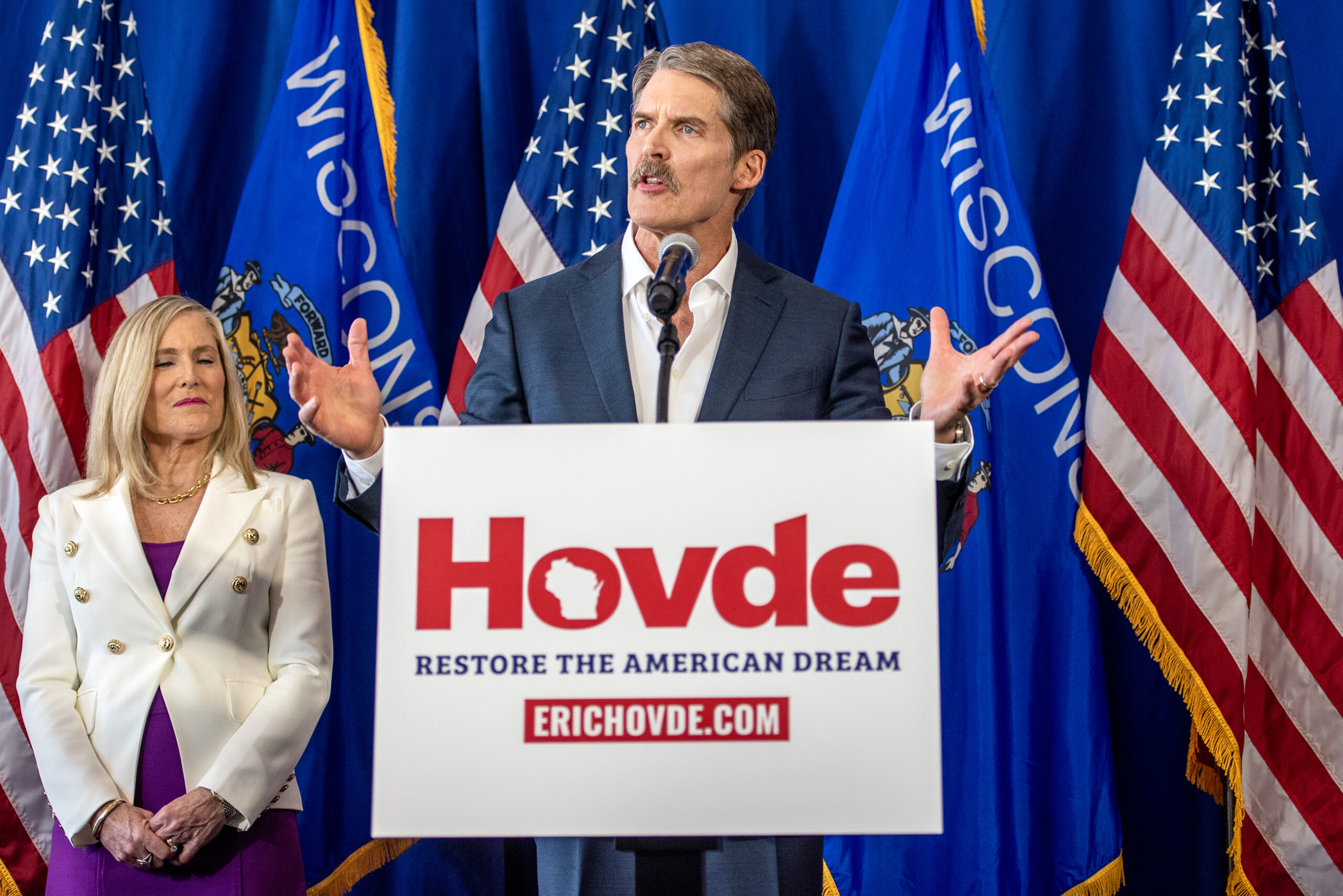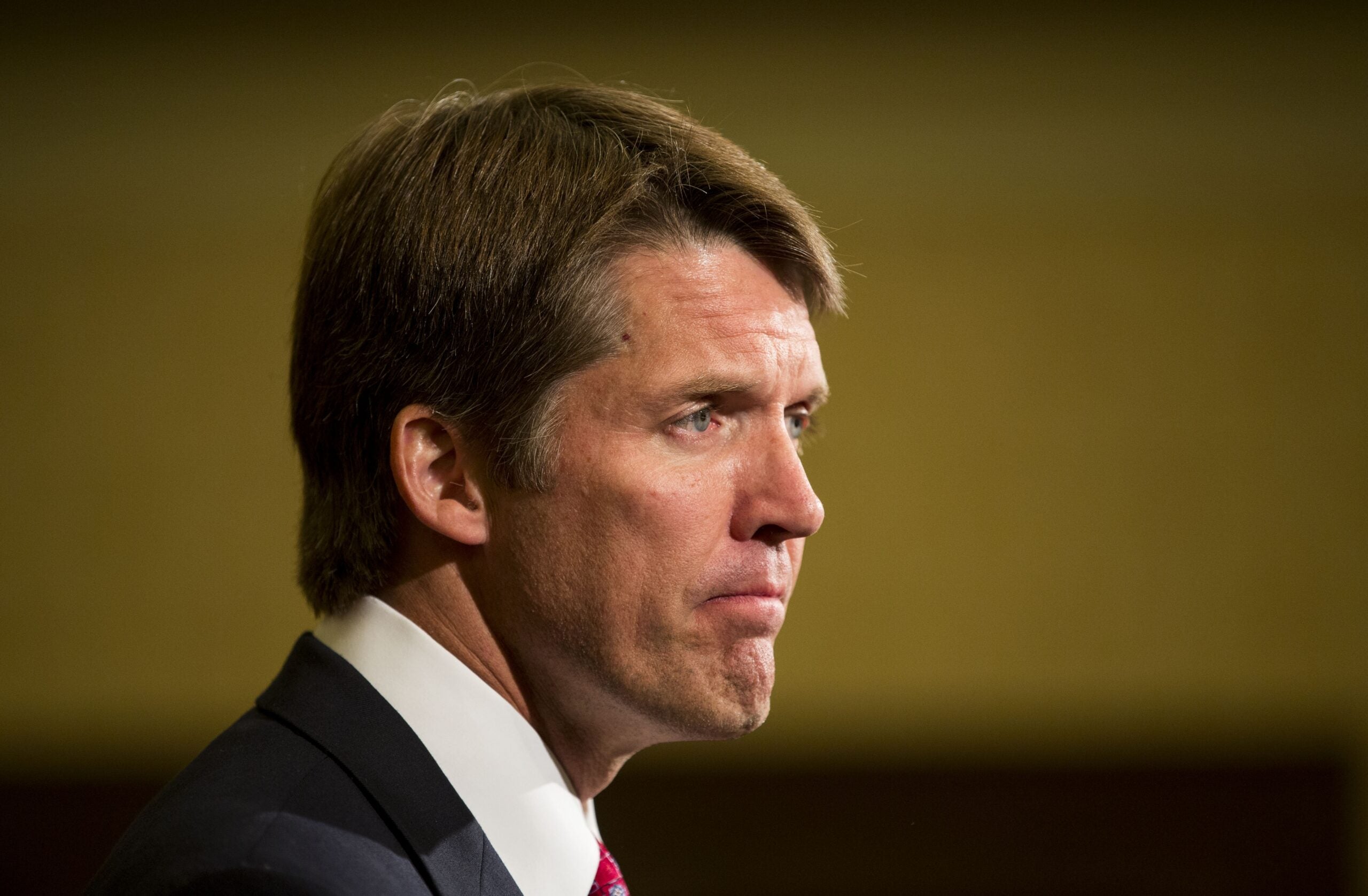Opposition to the Affordable Care Act helped propel Ron Johnson into office in 2010. Six years later, the Republican U.S. Senator still wants to repeal and replace the law.
His challenger, democrat Russ Feingold, who voted for the Affordable Care Act, wants to keep it. The constant battling has left some voters wondering what to expect with their health care, even as they concede the law, known as Obamacare, needs work.

Martha Kemble works at Union Cab in Madison. She said cab companies often do not provide workers health insurance but Union does, noting the company has had to reduce its share of costs. Shamane Mills/WPR
Stay informed on the latest news
Sign up for WPR’s email newsletter.
For 13 years, Martha Kemble has worked at a Madison cab company. Before going in to work, Martha stops at a local cafe for breakfast. She orders a sunrise muffin, then doles out $2.64.
Kemble knows her dollars and cents, especially when it comes to the cost of health care: she knows what her company pays and what workers chip in.
That’s because Kemble works in human resources, so she’s both management and labor. Kemble said the Affordable Care Act helped control health insurance premiums, whether people buy coverage on the exchange or get it through their job. She said premiums had been going up double digits prior to the law.
“I think before the Affordable Care Act, I mean it was out of control. Prices were going up,” she said.
Kemble said over the years more of her paycheck has gone to pay for health coverage.
“When I started, I probably had to work about three or four hours a month to pay for it. And now I’m working over 10 hours a month to pay for it,” she said.
Kemble also knows her company considered whether to drop insurance coverage for employees because of costs. There were two issues: one, under the ACA the company would have to pay a fee. And two, she said it’s unlikely workers would qualify for subsidies to pay for plans purchased on the exchange, leaving coverage unaffordable for some. There was no perfect solution.
“The Affordable Care Act, I believe, solved some problems but it created a whole new set of problems that we have to deal with,” Kemble said.
In the race for Wisconsin’s U.S. senate seat, both candidates risk alienating voters by changing or replacing the ACA.
Kemble supports a single-payer health system, the kind Bernie Sanders talked about in the presidential primary. Feingold wants Sanders supporters to back him, but he won’t go quite so far, Feingold supports a public option as he stated in this interview with WISN TV’s Mike Gousha.
“I agree with him on many issues, in fact Bernie and I were holding out for an even stronger bill on the Affordable Care Act,” Feingold said. “We wanted a single … an option, an option to opt in. A public option.”
A public option would create a government-run health insurance plan to compete with private plans on the exchanges.
Feingold’s opponent, Johnson, wants to get rid of the ACA, which includes a provision requiring insurance companies to cover everyone, including those with pre-existing conditions. Johnson said he would end the law’s mandate to get insurance and replace it with free market reforms. He said that would give consumers the lowest price, best quality and best customer service.
“That was the promise of Obamacare but we have not increased competition, we have decreased it,” Johnson said. “That’s why these insurance rates are just skyrocketing.”
Voters like Kemble know employers have been pushing more of the cost of health care onto employees.
“Every year, its more and more. It’s more and more and more,” she said.
But Kemble is uneasy with election year calling to end the Affordable Care Act until something better comes along.
Wisconsin Public Radio, © Copyright 2024, Board of Regents of the University of Wisconsin System and Wisconsin Educational Communications Board.





